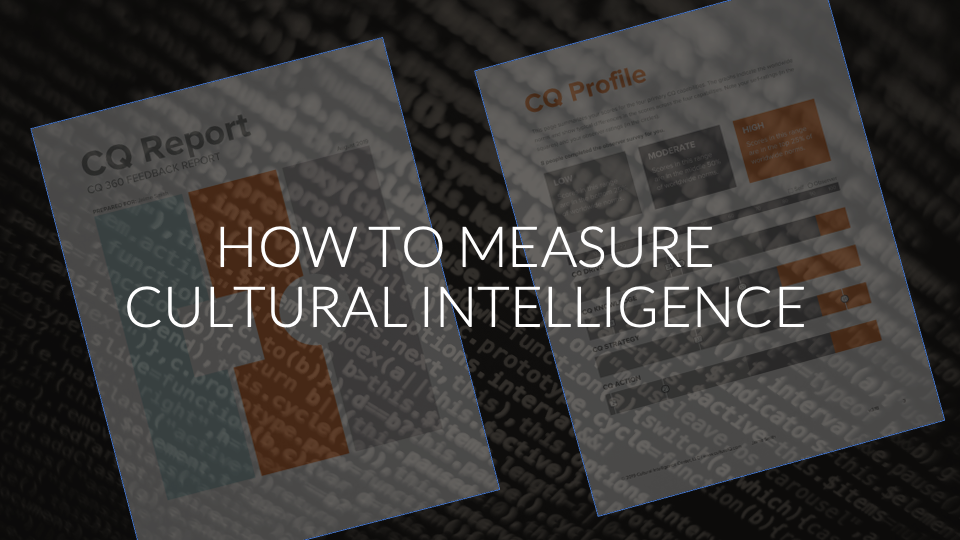Guest post written by Emily Livermore, Content Developer, Cultural Intelligence Center
I was 10 years old the first time I visited China. I had spent significant time in Southeast Asia before that, but my family’s trip to Kunming was one of the first times I remember noticing the significant “Otherness” of the food, city, and culture. My parents always sought out opportunities for our family to engage with culture no matter where we were. This trip to China was no different.
Upon arrival in Kunming, I’m exhausted and already missing my friends back home when my dad tasks each family member with coming up with 10 observations about this new place by dinner. (It really wouldn’t be a Livermore family trip without some sort of CQ® homework assignment.)
On the drive from the airport to the hotel, I stared out the window collecting observations. I remember observing the overwhelming number of street dogs, the masses of motorbikes, and cars that had every window tinted black. The great thing about actively making observations is that they inevitably lead to questions. Why are there so many stray dogs? Why is the motorbike the preferred mode of transit? Why are drivers allowed to tint all of their windows?
The nice thing about being 10 years old is that you aren’t expected to have a filter yet. I loved asking questions, and being in an unfamiliar place was a breeding ground for this innate curiosity. It was a constant cycle of observing my surroundings and asking whatever popped into my head.
Today at 22 years old, so many of my questions can be directed to Google but, for the ones that can’t, what’s the etiquette for asking questions as an adult when you’re in an unfamiliar place?
Though my parents don’t “assign” my sister and me cultural exercises anymore, observing and asking questions is still core to how we continue to explore the world together. But there are new approaches I’ve learned as an adult to ensure this practice is both meaningful and culturally intelligent.
What are the right questions to ask?
In my experience, the most meaningful questions open dialogue or lead to additional questions. A meaningful question has answers that give you value beyond a tidbit of new information.
Let’s say you are working in Indonesia with a Muslim colleague who is gay. You may be wondering about this colleague’s experience as a gay individual in the most populous Muslim country in the world. This is definitely a meaningful question, but it’s also tricky because it can be a sensitive topic. To address this, try de-personalizing the question. Instead of asking about their personal experience coming out, start with something like How do most parents here respond when they learn their child is gay? If this colleague is an indirect communicator, you may want to distance the question even further by asking What’s something you wish more people realized about your culture? And you can always give your colleague an out by adding No need to answer if it makes you uncomfortable.
The other thing to keep in mind in asking meaningful questions while you travel is making sure the question you are asking does not make an assumption of its own. We make assumptions all the time without even knowing it.
For example, one of my first times in Costa Rica, after a couple of meals out, my family noticed that the servers were bringing the check to my mom instead of my dad. This prompted my mom to ask, I wonder if the woman is considered the head of the family here? The question was prompted after only two instances. In my mother’s defense, this is extremely easy to do. We all actively look for patterns to learn more about the culture surrounding us when we travel, and when something unusual happens a couple of times in a row, it can prompt some assumptions. One way to turn this kind of observation into a more meaningful insight is to take a step back. Try asking your server or another friendly local, So in my culture, the bill often goes to the most senior person at the table. Is there any standard practice regarding who receives the bill here? Alternatively, you could broaden the conversation to other Ticos you meet throughout your trip. What assumptions do people make about who pays the bill at a restaurant? Does the type of restaurant influence the custom? What if it’s a foreign family versus a local one? The answers will reveal more about the culture and may even teach you some local customs as compared to if you had stuck with my mom’s original question, in which case the only takeaway may be that you just jumped to conclusions too quickly.
Knowing the right questions to ask is just half of the challenge for the culturally intelligent traveler. It’s just as important to understand…
When is it right to ask them?
Determining the right and wrong moments to ask your questions falls almost entirely on one key factor: Context.
What’s your relationship with the individual(s) you want to ask? Are you at a business meeting or in a social setting? Are you in a cultural context where gender may make a significant difference? How familiar are you with the cultural context?
These are all questions you should be asking yourself to determine if and when you are in an appropriate context, ask someone a cultural question.
Questions can make people feel defensive, but without them, we learn little from our travels. There are no hard and fast rules about the right and wrong moments to ask someone a cultural question, but there are some guidelines you can follow to help you distinguish between safe and risky contexts for your questions.
Here are two lists to help you:
Safe Contexts for Asking Questions
- You are with a small group of locals or one-on-one
- You are with peers
- You have established a friendly relationship with the individual(s)
- The context is relaxed, low stress
- You are aware of communication style differences in the room
- The individual(s) you are with are already discussing their culture/customs
Risky Context for Asking Questions
- You are with a large group of people
- You are with professional superiors or elders
- You just met the individual(s) involved
- The context is high stakes (e.g., negotiating a business deal)
- There is a language barrier, and you are not sure you can communicate your question clearly
Cultural intelligence allows you to pick up on social cues and body language to give you the information you need to decide when to ask your questions. And even if you misjudge a situation, usually the worst that will happen is an awkward moment that makes for a good learning experience. I’ve certainly had my fair share of miscommunications but not nearly enough to cancel out the cultural insights I’ve gained from persistently asking questions as I travel around the world.
This article is inspired by some of the content in David Livermore’s newest book, The Curious Traveler. Filled with anecdotes and practical advice, the book discovers the links between curiosity, CQ®, and travel. Available for purchase now.
Read more from Emily Livermore here.
For more information about the book check out this Q+A with Dave below!



